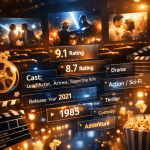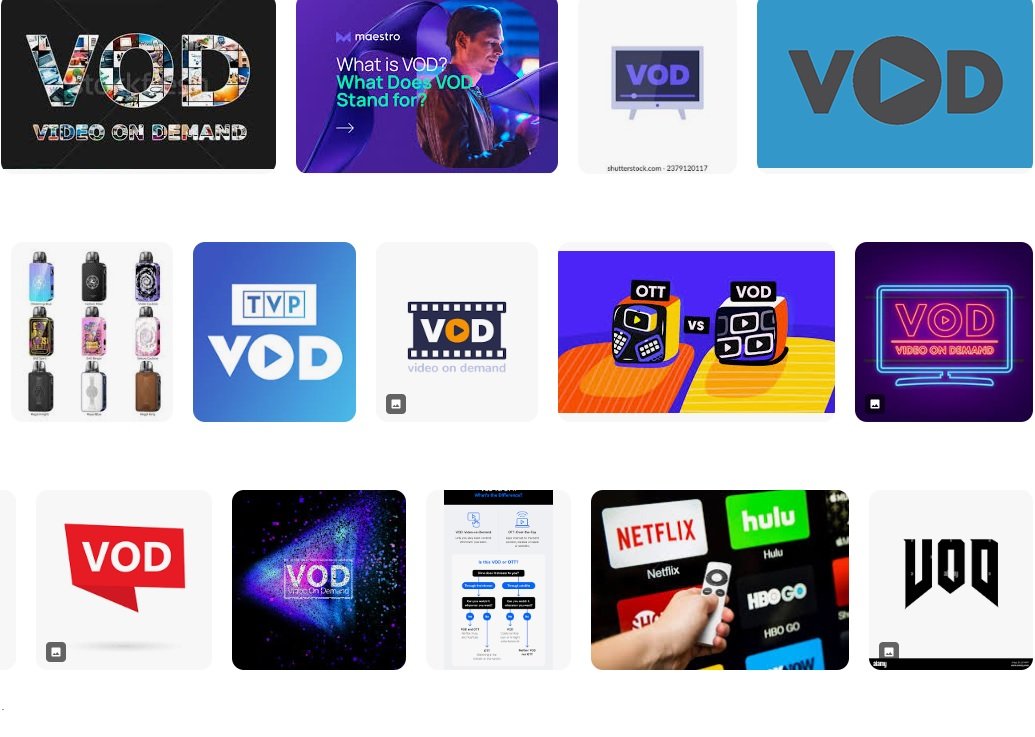Definition of Entertainment
Entertainment is an activity or form of art that captures the attention and interest of an audience, providing pleasure and delight. It encompasses a wide range of activities and experiences, from watching a thrilling movie to participating in a live theater performance or playing a video game. Entertainment serves as a means of relaxation, escapism, and joy in our daily lives.
Importance and Relevance of Entertainment in Modern Life
In today’s fast-paced world, entertainment plays a crucial role in our mental and emotional well-being. It provides a necessary escape from the stresses of daily life, offering moments of joy, laughter, and reflection. The diverse forms of entertainment available today cater to various tastes and preferences, ensuring there is something for everyone.
Evolution of Entertainment Over Time
Entertainment has evolved significantly over the centuries, shaped by cultural, technological, and societal changes. From ancient storytelling and theatrical performances to modern digital media, the ways in which we entertain ourselves have transformed, reflecting the dynamic nature of human creativity and innovation.
Types and Categories of Entertainment
Performing Arts
Theater
Theater is one of the oldest forms of entertainment, dating back to ancient Greece. It involves live performances by actors on a stage, often telling a story through dialogue, music, and movement. Theater encompasses various genres, including drama, comedy, and musical theater.
Dance
Dance is a form of expression through movement, often set to music. It ranges from classical ballet to contemporary dance styles, each with its own techniques and cultural significance.
Opera
Opera combines music, drama, and sometimes dance to tell a story. It is characterized by its complex musical compositions and powerful vocal performances.
Comedy
Comedy is a genre of entertainment that aims to amuse and entertain through humor. It can take various forms, including stand-up comedy, sitcoms, and comedic plays.
Visual Arts
Painting
Painting is a visual art form that involves applying pigment to a surface, such as canvas or paper, to create an image. It has a rich history, with various styles and movements, from classical realism to modern abstract art.
Sculpture
Sculpture involves creating three-dimensional artworks by shaping materials such as stone, metal, or clay. It has been a prominent form of artistic expression throughout history, with notable works ranging from ancient statues to contemporary installations.
Photography
Photography is the art of capturing images using a camera. It has evolved from traditional film photography to digital photography, allowing for greater flexibility and creativity in capturing moments.
Music
Classical
Classical music is a broad term that encompasses a wide range of orchestral and instrumental music composed primarily between the 17th and 19th centuries. It is characterized by its complex structures and rich harmonies.
Jazz
Jazz is a genre of music that originated in the African-American communities of New Orleans in the late 19th and early 20th centuries. It is known for its improvisational style and diverse influences.
Rock
Rock music emerged in the 1950s as a form of popular music characterized by a strong beat, simple melodies, and the use of electric guitars. It has since evolved into various subgenres, including punk, metal, and alternative rock.
Pop
Pop music is a genre that is characterized by its mainstream appeal and catchy melodies. It often incorporates elements from various musical styles, making it a versatile and ever-evolving genre.
Film and Television
Movies
Movies, or films, are a form of visual storytelling that combines moving images, sound, and music to convey a narrative. The film industry has produced a vast array of genres, from action and adventure to romance and drama.
TV Shows
Television shows are serialized programs that are broadcast on TV networks or streaming platforms. They range from scripted dramas and comedies to reality TV and documentaries.
Documentaries
Documentaries are non-fiction films or TV shows that explore real-life events, people, or issues. They aim to inform and educate viewers while often presenting a compelling narrative.
Services in which you might be interested:
Literature
Novels
Novels are long-form fictional works that tell a story through prose. They encompass a wide range of genres, including romance, science fiction, fantasy, and mystery.
Poetry
Poetry is a form of literary expression that uses rhythmic and often metaphorical language to evoke emotions and create vivid imagery. It can take various forms, from traditional sonnets to free verse.
Short Stories
Short stories are brief fictional narratives that focus on a single plot or theme. They are often used to explore ideas and emotions in a concise and impactful way.
Games and Sports with Entertainment
Video Games
Video games are electronic games that involve interaction with a user interface to generate visual feedback. They range from simple arcade games to complex, immersive experiences.
Board Games
Board games are tabletop games that involve players moving pieces or cards around a pre-marked surface according to a set of rules. They can be competitive or cooperative and cover a wide range of themes and mechanics.
Physical Sports
Physical sports involve physical exertion and skill, often in a competitive context. Popular sports include football, basketball, soccer, and tennis.
Services in which you might be interested:
Digital and Online Entertainment
Social Media
Social media platforms allow users to create and share content, connect with others, and participate in virtual communities. They have become a significant source of entertainment and social interaction.
Streaming Services
Streaming services provide on-demand access to a wide variety of content, including movies, TV shows, music, and live events. Popular platforms include Netflix, Spotify, and YouTube.
Virtual Reality
Virtual reality (VR) is an immersive technology that creates a simulated environment, allowing users to experience and interact with a virtual world. It is used in gaming, education, and various forms of entertainment.
importance of Entertainment
Mental Health Benefits from Entertainment
Stress Relief
Engaging in entertainment activities can provide a much-needed break from daily stressors, helping to reduce anxiety and improve overall mental health.
Cognitive Development
Certain forms of entertainment, such as puzzles and strategy games, can stimulate cognitive development and improve problem-solving skills.
Emotional Expression
Entertainment, particularly through the arts, provides an outlet for emotional expression and can help individuals process complex feelings.
Therapeutic Uses
Art and music therapy are recognized forms of treatment that use creative activities to promote healing and well-being.
Social Connectivity Entertainment
Building Relationships
Shared entertainment experiences, such as watching a movie or attending a concert, can strengthen relationships and build a sense of community.
Community Engagement
Local cultural events and festivals provide opportunities for community engagement and social interaction.
Shared Experiences
Entertainment creates shared experiences that can foster a sense of belonging and cultural cohesion.
Cultural Exchange
Global entertainment platforms facilitate cross-cultural exchange, allowing people to experience and appreciate different cultures.
Cultural Enrichment Entertainment
Preservation of Traditions
It helps preserve cultural traditions and heritage, passing them down through generations.
Promotion of Creativity
The entertainment industry encourages creativity and innovation, providing a platform for new ideas and artistic expression.
Cross-Cultural Understanding
Exposure to diverse forms of entertainment promotes cross-cultural understanding and tolerance.
Educational Value
Many forms of entertainment, such as documentaries and educational games, have significant educational value, enhancing knowledge and awareness.
Economic Impact
Employment Opportunities
The entertainment industry provides numerous employment opportunities, from artists and performers to technicians and marketers.
Revenue Generation
Entertainment is a significant driver of economic growth, generating revenue through ticket sales, merchandise, and advertising.
Tourism Boost
Entertainment attractions, such as theme parks and cultural festivals, boost tourism and contribute to local economies.
Technological Advancements
The demand for innovative entertainment experiences drives technological advancements, leading to new products and services.
Future of Entertainment
Emerging Trends
The future of entertainment is shaped by emerging trends such as interactive storytelling, immersive experiences, and personalized content.
Role of Technology
Advancements in technology, including artificial intelligence and augmented reality, are transforming the entertainment landscape.
Predictions and Forecasts
Experts predict continued growth in digital and online entertainment, with increasing integration of virtual and augmented reality.
Potential Challenges and Solutions
The entertainment industry faces challenges such as digital piracy and the need for sustainable practices, which require innovative solutions.
Conclusion
Summary of Key Points
Entertainment is a diverse and dynamic field that plays a crucial role in our mental health, social connectivity, cultural enrichment, and economic development.
The Ever-Changing Nature of Entertainment
The nature of entertainment is constantly evolving, driven by technological advancements and changing societal preferences.
Call to Action for Further Exploration
Explore the world of entertainment and discover the various forms and experiences it has to offer, enriching your life and broadening your horizons.
















